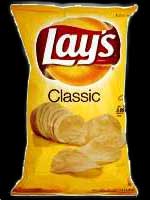To Brand or Not to Brand?
Branding. You hear it everywhere. At coffee shops, at conferences, in the stables. Okay, that might be a different definition, but the word “Branding” is as popular as “Platform” was five years ago. First off, I want to say that Branding is NOT marketing. Same nose and chin, but no relation.
Marketing is about selling your product to your target market. Branding is about positioning your product within your target market.
Steps necessary to creating a brand:
- You want your brand to clearly deliver your message to your target audience. Why? Because “like attracts like.” If your message resonates with me, I’m more likely to choose your brand over another that resonates less.
- You want your brand to show your credibility to your target audience. Why should your audience buy from you instead of your competitor? Your credibility is what convinces them. And your credibility can range from experienced, researched, down to novice. But it must be true. Nothing destroys credibility faster than getting caught in a lie. Just ask Lance Armstrong.
- You want your brand to emotionally connect you to your target audience. Yes, I want the facts, ma’am, but if you tug on the ole heart strings, I’m more likely to follow you anywhere.
- You want your brand to motivate your target audience to buy. All three of the previous steps will lead to this step in a natural progression.
- You want your brand to create loyalty. This step is a given. People don’t like change. I get angry when Lays changes the bag design on their chips and I have to spend five extra minutes trying to figure out which new bag is the one I usually buy. If you clearly deliver your message, emotionally and with credibility you will keep your audience. But if your message is weak and easily overpowered by another or if your credibility is false or inflated with gas, your audience will turn away.
For Writers
Let’s get more specific and aim this at writers. Are you as an author your brand or are your books your brand?
Only you can answer that, but a few questions to ask yourself in order to answer are:
- Is there a common voice, theme, subject, etc. running through all of my writing?
Think Lee Child’s Reacher series with many subjects but one main character. Or Carl Hiaasen’s novels with different characters, but the common thread of humor and a common theme of the selfish grab for Florida’s natural resources. - Do I write in more than one persona?
Think of Stephen King versus Richard Bachman, or Anne Rice versus A. N. Roquelaure. - Do I write in more than one genre?
Think Pat Conroy who has written literary, non-fiction, and memoir. Or John Grisham who is a household legend with his legal thrillers, but who also writes literary novels.
After answering these questions, you may find that it’s best for you to create more than one Brand. Using the five steps above, you need to develop the message you want to deliver to your audience. How are you or your books different? Why should I read your book versus all the others shoved under my desk waiting to be read?
Were you raised on a farm and you write farming mysteries? Or have you never cooked a day in your life and you’ve written a cookbook for dummies?
Part of positioning your brand is defining who your target audience is. I’ll save that “defining” moment for a future post. In the meantime, send me your comments. I’m very interested to hear what you have to say on the subject as I, too, am searching for a way to position myself.





Branding would be like actually nailing the essence of your work, something I’m not quite able to do yet. I could see your smart, sassy, heroine become a brand, for sure.
Hey Carol, Yes it is like nailing the essence of your work or finding a common thread. For example: even though I write Thrillers and Mysteries, plus one Paranormal I realized the one thread that was constant in all was an interest in different religious myths. Maybe for you music is a common thread.
Excellent post and quite a few good thinking points! Just curious do you have any hints, tips, or tricks for identifying your target audience? Okay, I’m also asking because my model target reader audience is me and… I’ll cop to it… I’m a weird target audience who might flit from a dusty history book to a shiny new romantic suspense with a scrump-diddle-e-icious special ops hero who’s in need of reform for his (buried only so deep down) regency rakish ways. ;-)
Hello Elijana, Welcome! I’m working on another post about identifying your audience, but from what you’ve said it sounds like people like me are your audience. That means electic readers that like all kinds of books. You could try and narrow down what you like in the diversity of books. For example: Is it a fast moving story or a novel steeped in atmosphere?